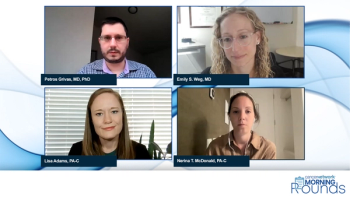
Genitourinary cancer experts share insight on best practices in educating patients on treatment schedules and adverse events when receiving therapy for advanced bladder cancer.

Your AI-Trained Oncology Knowledge Connection!


Genitourinary cancer experts share insight on best practices in educating patients on treatment schedules and adverse events when receiving therapy for advanced bladder cancer.

Focused discussion on the optimal use of radiation therapy strategies, alone or in combination with systemic therapy, for patients with advanced bladder cancer.
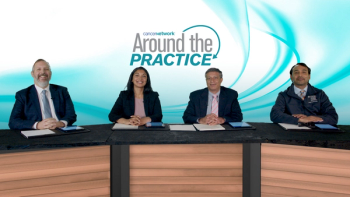
Subject matter experts share strategies for determining treatment selection and duration for patients with transplant-ineligible NDMM.

Subject matter experts share strategies for determining treatment selection and duration for patients with transplant-ineligible NDMM.
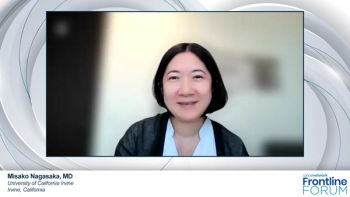
Closing out their discussion on EGFR Exon20+ non–small cell lung cancer, Joshua Sabari, MD, and Misako Nagasaka, MD, share excitement for future evolutions in the treatment paradigm.
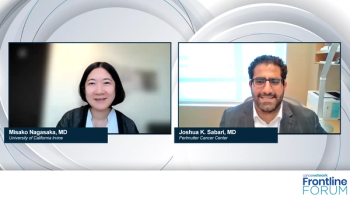
A brief review of novel EGFR TKIs that may have stronger CNS penetration in patients with non–small cell lung cancer and brain metastases.
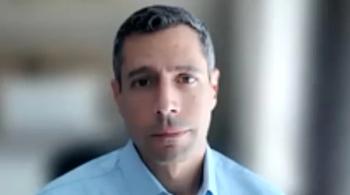
Chemotherapy agents imported from Chinese manufacturers may have barcodes that don’t work or be missing an NDC number, according to Michael Ganio, PharmD, MS, BCPS, FASHP.
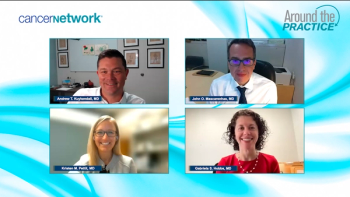
Expert panelists share brief insight on the current NCCN guidelines for selecting treatment in patients with myelofibrosis.

Focused discussion on the factors that help to select patients for stem cell transplantation over systemic therapy in the setting of myelofibrosis.
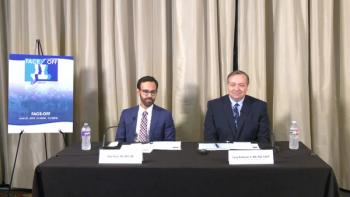
Key opinion leader Prashant Kapoor, MD, FACP, shares data from the CARTITUDE-4 study of ciltacabtagene autoleucel in patients with relapsed/refractory multiple myeloma.
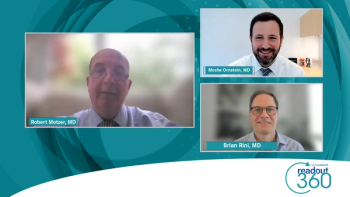
Dr Moshe Ornstein details the adverse events seen with IO/TKI combination regimens in patients with advanced renal cell carcinoma and the best strategies for management.

A focused discussion led by expert Abhishek Mangaonkar, MBBS, on a retrospective analysis elucidating arterial occlusive events within the PACE study.
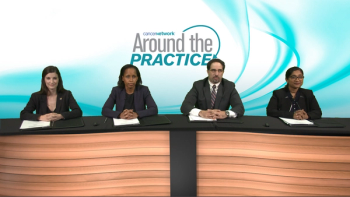
Nausheen Ahmed, MD, gives an overview of BCMA bispecific T-cell engagers used in the treatment of multiple myeloma.

Aparna Parikh, MD, MS, talks about the MD Anderson INTERCEPT program, which is studying the relationship between ctDNA and recurrence in colorectal cancer.
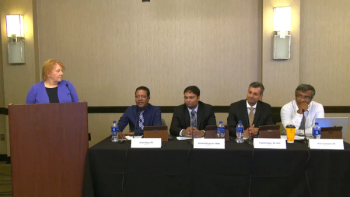
Panelists follow up with questions and comments on the KarMMa-3 study in relapsed/refractory multiple myeloma and consider how idecabtagene vicleucel might fit into real-world practice.

Experts discuss the optimal treatment of patients with renal cell carcinoma and brain, bone, or lung metastases.

Expert perspectives from the Mayo Clinic and UT Southwestern teams on applications of the OPTIC study and optimal ponatinib dosing in chronic myeloid leukemia.
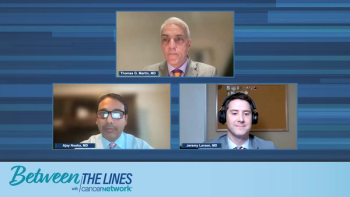
Following their review of data from MajesTEC-1, panelists consider how they manage patients with cytokine release syndrome in the real-world setting.
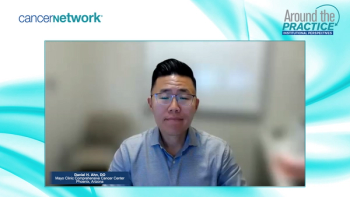
Daniel H. Ahn, DO, discusses the CIRCULATE-Japan trial, which is studying how ctDNA can be used to guide adjuvant therapy in colorectal cancer.

Experts on multiple myeloma discuss the mechanism of action and adverse events for teclistamab and compare CAR T-cell therapy with bispecific T-cell engagers (BiTEs).

Results of a survey from the National Comprehensive Cancer Network indicate that almost all responding institutions are impacted by the carboplatin shortage.
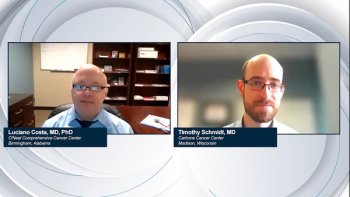
Dr. Costa and Dr. Schmidt consider promising emergent treatment options and current unmet needs in the NDMM treatment landscape.

Experienced clinicians share their perspectives on maintenance therapy for patients with NDMM.
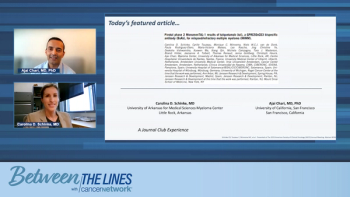
In the context of other clinical trials for patients with relapsed/refractory multiple myeloma, Ajai Chari, MD, and Carolina Schinke, MD, review data from TRiMM-2.

Expert perspectives on the real-world use of combination teclistamab and talquetamab in patients with relapsed/refractory multiple myeloma.
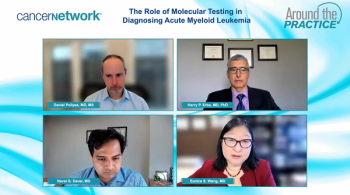
The expert panel discuss emerging data on menin inhibitors in the second-line treatment of AML, including an overview of the KOMET-001 trial evaluating ziftomenib.

Experts on acute myeloid leukemia share clinical insights on first-line combination therapies, including the potential role of menin inhibitors in this setting.

Lenvatinib in combination with pembrolizumab appears to raise no new safety signals in patients with advanced clear cell renal cell carcinoma after 4 years of follow-up in the phase 3 CLEAR study.
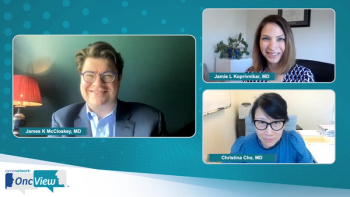
Discussion centered around the role of allogeneic transplants in the treatment of MDS, MPN, and AML, focusing on the transplant process, eligibility criteria, patient selection, and post-transplant monitoring.

Subject-matter experts highlight unmet needs in AML treatment, investigational therapies, and emerging targets showcased in recent studies.